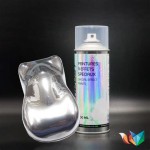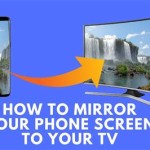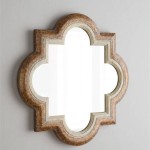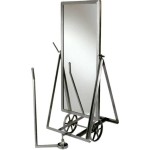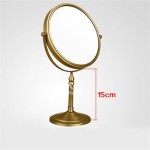Should a Mirror Face the Front Door?
The placement of mirrors within a home is often a topic of discussion in various cultures and belief systems. Specifically, the question of whether a mirror should face the front door is a common one, often framed within the principles of feng shui. This practice, originating in ancient China, emphasizes the harmonious arrangement of objects to foster positive energy flow (qi) within a space. This article examines the various perspectives surrounding this practice.
Feng Shui Perspectives
Feng shui generally advises against placing a mirror directly opposite the front door. The main reasoning behind this principle is the belief that mirrors, with their reflective properties, can deflect or repel incoming energy. In feng shui, the front door is considered the "mouth of qi," the primary entry point for vital energy into the home. Placing a mirror directly opposite this entryway is thought to literally bounce this energy back out, preventing it from nourishing the space.
Alternative Views within Feng Shui
While the prevailing view in feng shui discourages mirrors facing the front door, some nuances exist. Certain practitioners suggest that the size and placement of the mirror are critical factors. A small mirror may not have the same deflecting effect as a large one. Additionally, if the mirror reflects a pleasant view, like a garden or a beautiful artwork, this may be viewed more favorably. The focus shifts from repelling energy to reflecting positive imagery into the home. This nuanced perspective suggests that the context of the placement matters as much as the placement itself.
Cultural and Symbolic Interpretations
Beyond feng shui, other cultural beliefs and symbolic interpretations exist regarding mirrors and entryways. Some cultures associate mirrors with supernatural qualities, believing they can capture or reflect souls. Placing a mirror opposite the front door could be seen as disruptive to the spiritual harmony of the home. In other traditions, mirrors are simply seen as reflective of the self and the home. Placing one opposite the entrance might symbolically project the home's inner essence outwards.
Practical Considerations for Mirror Placement
Aside from cultural and energetic considerations, practical aspects influence mirror placement. Functionality, aesthetics, and spatial dynamics all play a role. A mirror near the entrance can be convenient for last-minute appearance checks. It can also enhance the perception of space, making a narrow entryway appear larger. From a purely practical perspective, the placement decision often boils down to individual needs and preferences.
Mirrors and Energy Flow in Interior Design
More broadly, mirrors are powerful tools in interior design, influencing both the perceived and experienced energy of a space. They can amplify natural light, create illusions of depth, and add aesthetic interest. Strategically placed mirrors can enhance the flow of movement and create a sense of openness. Understanding the interplay of reflection and light can maximize the positive effects of mirrors in any room.
The Importance of Intention in Design
Whether adhering to feng shui principles or other design philosophies, the intention behind decorating choices can be significant. The belief system or personal meaning associated with an object influences its perceived impact on the environment. If an individual believes a mirror facing the front door will bring negative consequences, that belief can manifest in how they experience the space, regardless of any tangible effect. Conversely, a thoughtfully placed mirror, imbued with positive intentions, can contribute to a sense of well-being.
Balancing Aesthetics and Beliefs
Ultimately, the decision of whether to place a mirror opposite the front door depends on a balance of factors. Aesthetic preferences, practical needs, cultural beliefs, and personal interpretations of energy flow all contribute. A balanced approach respects individual values while maximizing the aesthetic and functional benefits of mirrors. Careful consideration of these elements leads to a harmonious and personalized living space.
Analyzing the "Bagua" Map
In feng shui, the Bagua map is a fundamental tool for analyzing the energy of a space. It divides a room or home into nine areas corresponding to different life aspects. The placement of a mirror within these areas can influence the corresponding aspect. For example, a mirror in the wealth area might be seen as amplifying prosperity, while a mirror in the career area could represent advancement. Understanding the Bagua map provides a framework for analyzing mirror placement in relation to specific intentions.

Feng Shui Mirror Placement In Front Door Areas Fengshuinexus

Why Is A Mirror Facing The Front Door Bad Feng Shui

What S Not Feng On This Picture Do Place A Mirror Facing Your Front Door Read More At Www Oneworldfengshui Co Shui Tips Apartment Therapy

Mirror Directly Facing The Front Door Is A Big No Because It Repels Energy Coming Into Your Home Read More At Feng Shui Wall Decor

Feng Shui Mirror Facing The Front Door Truth Myth Explained

How To Feng Shui Your Entryway

A Mirror Facing The Main Door Is One Of Two Big Taboos In Feng Shui Stairs And Out Front Reason It N Entry Tall Wall

Tips For Feng Shui Mirror Placement Good Luck

6 Feng Shui Tips For Mirrors In Living Room To Invite Luck And Abun

38 Feng Shui Mirror Placement Tips Complete Expert Guide

